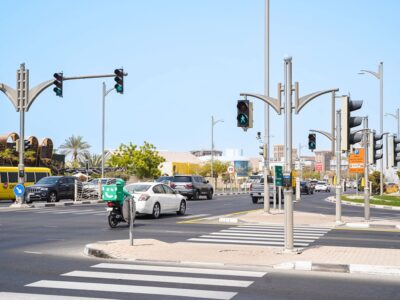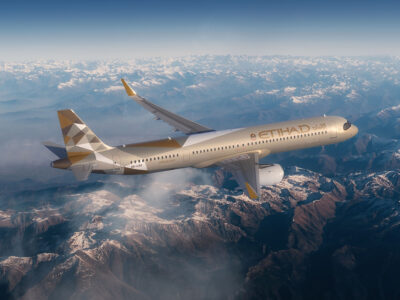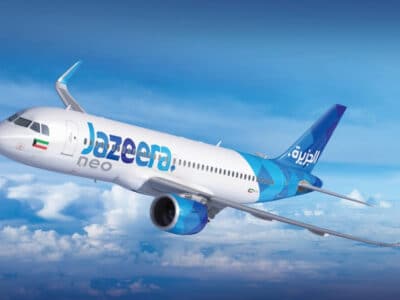The CEO of US carrier Delta Air Lines should resign over his comments intimating a link between Gulf carriers and the 9/11 attacks in New York, the Washington DC-based president of the US-UAE Business Council said.
Delta is one of three major US carriers urging the US government to review its open skies agreement with the UAE and Qatar, claiming they have evidence Emirates, Etihad Airways and Qatar Airways have received $40 billion in government subsidies.
In an interview on CNN on Monday, Anderson (picture below) blamed his company’s 2005 bankruptcy on “Arabian Peninsula 9/11 terrorists”.

“It’s a great irony to have the UAE from the Arabian Peninsula talk about that given the fact that our industry was really shocked by the terrorism of 9/11, which came from terrorists from the Arabian Peninsula, which caused us to go through a massive restructuring,” he said.
Following much criticism, Delta attempted to clarify the comment on Wednesday. “He didn’t mean to suggest the gulf carriers or their governments are linked to the 9/11 terrorists,” the statement said. “We apologise if anyone was offended.”
Dubai’s Emirates Airline quickly rejected the airline’s apology and questioned Anderson’s “credibility as a CEO of a US public listed company, as well as the integrity of the submission which his airline has submitted to the US authorities.”
However, Danny Sebright (pictured below), president of the Washington DC-based UAE-US Business Council, went even further and told Arabian Business the business community in the US was shocked by the Delta CEO’s comments and he believed Anderson should be forced to resign.

“It is completely inappropriate for him not to apologise. If the company spokesperson issues some statement as far as I am concerned it doesn’t absolve him. I agree with [Emirates president] Tim Clark that it calls into question his ability to lead a company like Delta right now when we have over a billion Muslims in the world and the issues we have at stake. These sort of words inflame and I would say he should think about resigning,” he said.
Launched in May 2007 by Sheikh Mohammed bin Zayed Al Nahyan, the Crown Prince of Abu Dhabi, the UAE-US Business Council comprises of nearly 100 members from a broad range of US and UAE commercial sectors and works to promote trade and economic relations between the two companies. Sebright was appointed president in June 2008, having previously worked at the US Defense Department as Director of the Policy Executive Secretariat for the global war on terrorism from 2001-2002.
In response to allegations Gulf carrier received $40 billion in government subsidies, Emirates’ Clark argued US carriers had benefited from their country’s bankruptcy protection, which allowed them to effectively wipe off billions of dollars in debt.
Qatar Airways CEO Akbar Al Baker also has responded, saying Anderson should be “ashamed” for his comment.
“Quite frankly Mr Richard Anderson needs to study to find out the difference between equity and subsidy,” Al Baker said on Tuesday.
“He should be ashamed to bring up the issue of terrorism in order to hide his inefficiency in running an airline. He should compete with us instead of cry wolf for his shortcomings.”
Numerous airlines globally were forced to undertake unprecedented restructuring programs in the mid-2000s, including retrenching thousands of staff and cutting services when flight bookings plummeted following the New York City attacks in 2001.
Two of the 19 9/11 hijackers were from the UAE, while 15 were from Saudi Arabia and the others were from Egypt and Lebanon.








